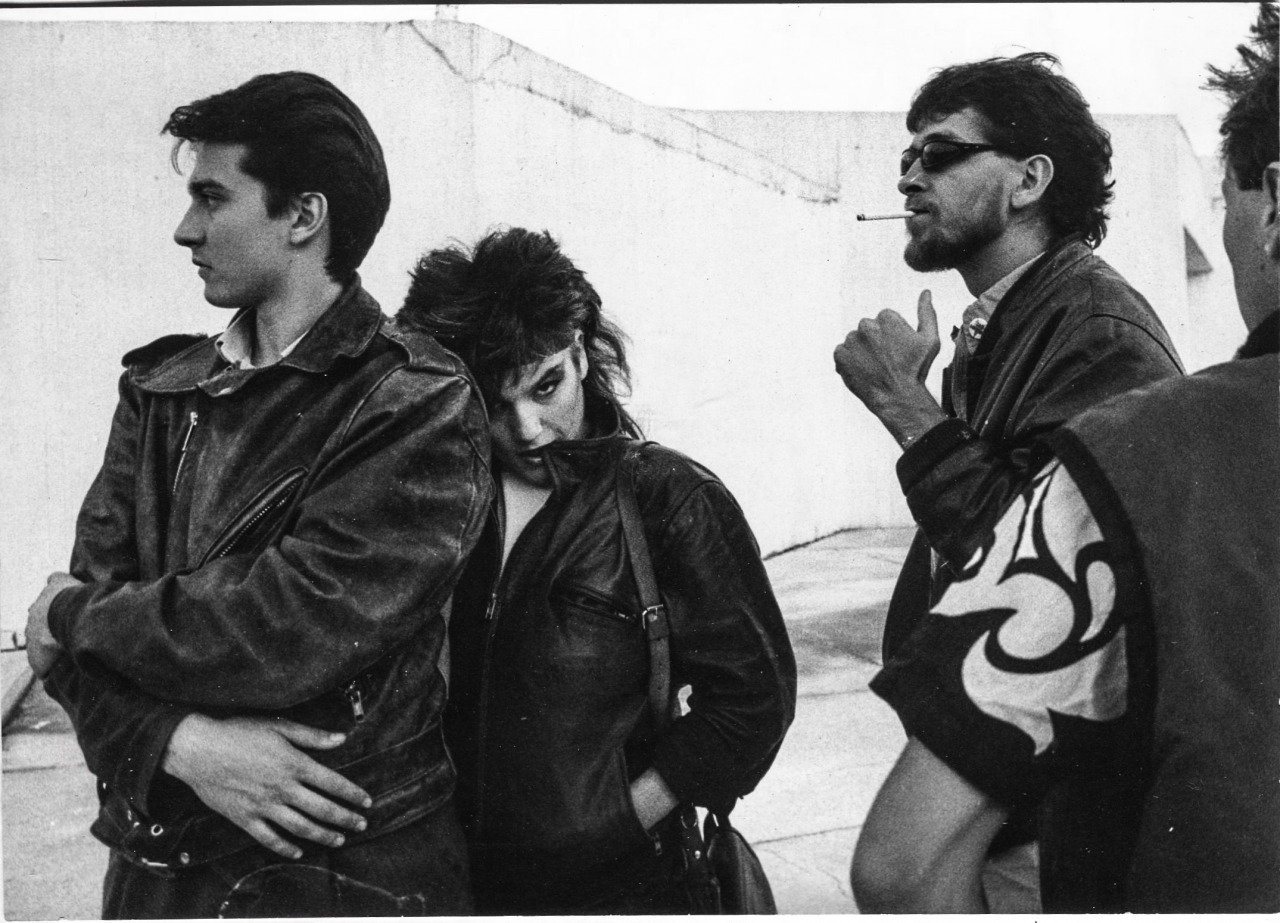A Colder Consciousness: You don’t have to be Western to be postmodern
Published March, 2018
by Easterndaze

ACC Records is a new label established in 2018, drawing upon the longstanding activities of Flora Pitrolo who has been tirelessly documenting music made before – but not exclusively – 1989. She works as a radio journalist on the London community radio Resonance FM, and is an avid listener and collector. A Colder Consciousness (ACC) began as a weekly show on Resonance FM in 2011. Three years later, a parallel broadcast began on Skopje’s Kanal 103 Radio. The aim was to present a synthetic, dystopian, sentimental, mysterious music whose aesthetic hovers between melancholia and modernity.
Can you talk about your background? You are based in London, but connected to the Macedonian scene. Can you talk about A Colder Consciousness, it’s aesthetics and raison d’être?
I’m based in London, but I’m actually Italian, and I’ve been living in the UK since 2004, first in Glasgow and then in London. A Colder Consciousness started in 2011 on Resonance FM as a weekly show, and 2014 it started a parallel broadcast in Skopje on Kanal 103, as part of the Sunday night offerings of Gjorgji Janevski’s Ako Nikoj Ne Sviri, and my connection to Macedonia comes from there. I was very lucky to meet Janevski the first time I visited Skopje and we immediately started thinking of doing things together – although I send in my episodes from London most months, I visit Skopje often and have had the pleasure of listening to a lot of music being made there over the past few years.
The show has changed over the past 7 years, but its raison d’être has stayed more or less the same: synthetic, dystopian and sentimental music, cold hands warm heart music, a certain cut of opaque music. Its aesthetics have always had to do melancholia and modernity. Then I think the sound of the show has shifted naturally over the years, in the sense that it’s deepened and ripened to a particular kind of sound and also expanded to a more curious, investigative approach sonically, but the ideas are always the same. The biggest change that has occurred is that in its first 3 years or so the Resonance show was pre-1989 music only – in fact I think the Resonance show stayed pre-1989 until I started running the ACC Label Series. Skopje brought new music in and a more mix-like approach, less talking, more theatrical and less radiophonic. But ACC is inherently an archival project: at the heart of it, it has to do with the past.
Could you talk about ACC Records, your new record label?
ACC Records is completely and organically connected to A Colder Consciousness – what I can say about the label is what I can say about the radio show.
Can you talk about Bastion, the inaugurating LP of your label? Why did you decide to choose this particular record, and can you describe the way how this record came about, since it was originally self-released in the early 80s. What were the reactions of the musicians that you want to re-release it, etc?
I always describe Bastion as a pearl of a record: it’s iridescent somehow, it’s playful, it’s curious, it’s strange, it’s dark on the inside and sparkling on the outside. I think Bastion is one of the most interesting records to have come out of Yugoslavia – and it came out of Skopje, which is where I got to know the record and understand its importance to the Macedonian scene, and which is an extraordinary city of contrasts in its own right. So in this way, with the move to Kanal 103, it felt like a very natural reissue, it felt like a celebration. On top of being beautiful and important, it’s expensive and rare, so it’s worth reissuing: people want it and they can’t afford it. I contacted Kiril Dzajkovski in 2016 and he was immediately enthusiastic, so we took it from there.
What are your plans with the label, what is your release plan for 2018?
The next record on ACC Records is going to be a reissue of tape-only material from the Turin-based industrial band DsorDNE, which is currently being restored by Marco Milanesio of DsorDNE from its original tapes and should be out this summer. After this, we’ll probably go contemporary for a little while – and, unexpectedly maybe, we’ll go to London. And then maybe back to Macedonia. I’m sorry I’m being so secretive, but you know, one thing at a time…
Do you think there was something specific in the sound (synth-wave) of Bastion compared to their Western counterparts? I guess Yugoslavia wasn’t as isolated as the rest of the Eastern Bloc.
I think what’s apparent in Bastion that makes it stand out as a Yugoslav record – which is also what’s apparent in other releases of the Yugoslav 1980s – is a kind of undogmatic experimentation which probably does have something to do with Yugoslavia’s position as a non-aligned country, where Eastern ideologies live alongside Western lifestyles.
I feel like there’s a lot of things happening on that record that don’t happen in this kind of configuration in Western music from the same time or of the same genre: a kind of old-school rock musicianship alongside a totally enamoured, genre-curious, experimental, fun sense of electronics, a diva-like glamour and an almost dadaist approach to song-writing. But it’s more than that, it’s a record that’s unschooled and irreverent yet full of sonic and cultural worlds that it takes the freedom to use exactly as it wants to, without following a recipe. In a way it’s a fundamentally postmodern record that demonstrates that you don’t have to be Western to be postmodern, which is so refreshing.
Our Radio Wave interview is here.